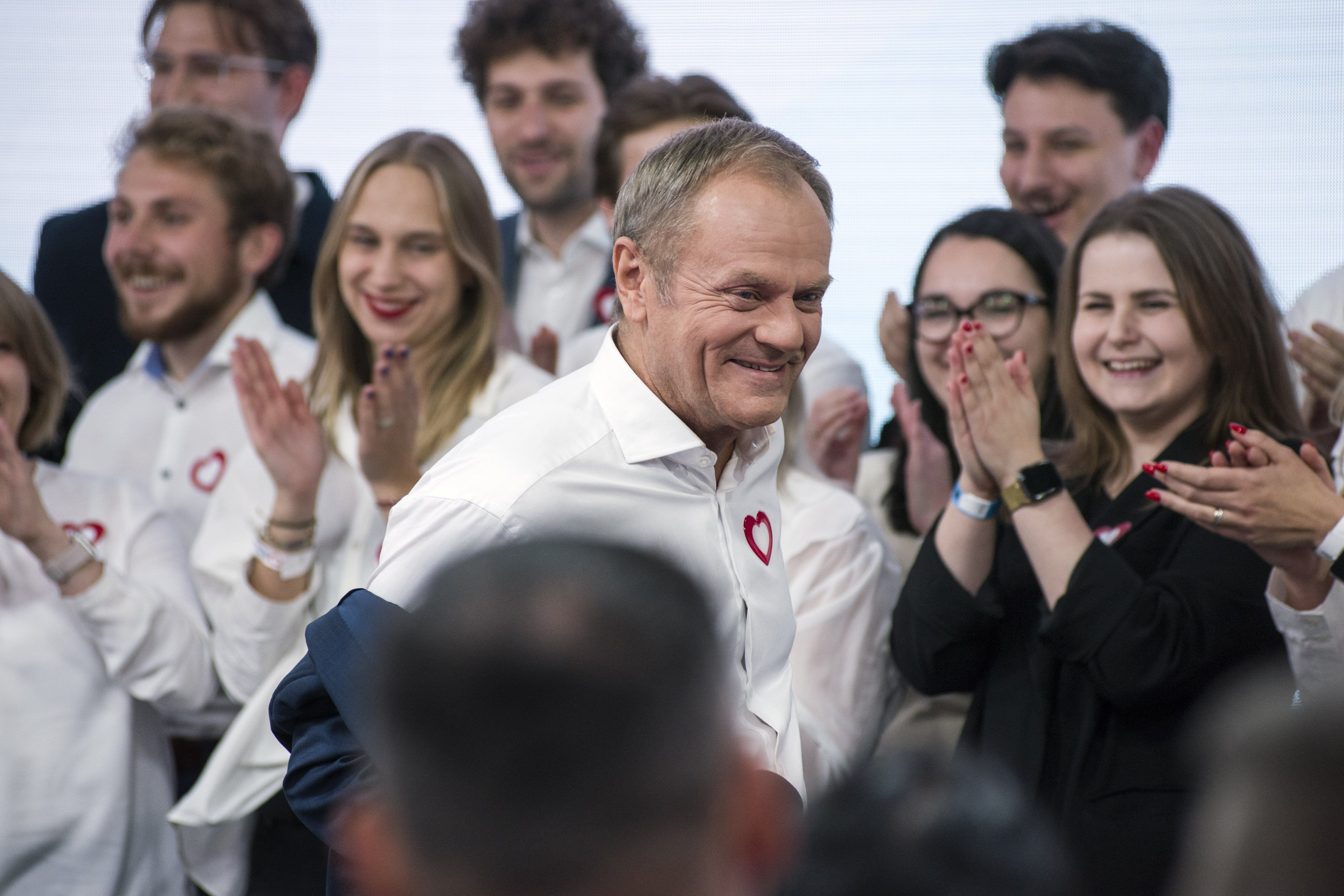The Civic Coalition's leader Donald Tusk speaks during the election night in Warsaw.
Exit polls from Sunday’s Polish national election show the ruling Law and Justice party, or PiS, failing to secure enough support to form a third majority government.
While it won the most seats, opposition leader Donald Tusk is claiming victory as his Civic Coalition looks to build a government with the Third Way and the Left, who scored a combined 248 seats, surpassing the 231 needed for a majority. The Third Way performed better than expected with 13% of the vote, while the far-right Confederation party, on whose support PiS depended, got only 6.2%, which the party called a defeat.
Turnout was the highest since 1989 when voters turfed the ruling communist party. Some 73% of Poles voted, compared to the expected 55-60%, suggesting that the liberal opposition mobilized enough voters in the last two weeks of the campaign to turn the tide in its favor.
“The outcome is good news for Poland’s domestic political and economic trajectory as well as its position in the EU,” says Eurasia Group expert Anna-Carina Hamker. “The incoming liberal opposition government will take steps to restore the rule of law and depoliticize state institutions while adopting a more consensus-oriented approach towards Brussels and other European capitals.”
